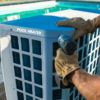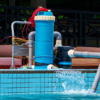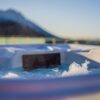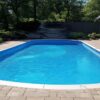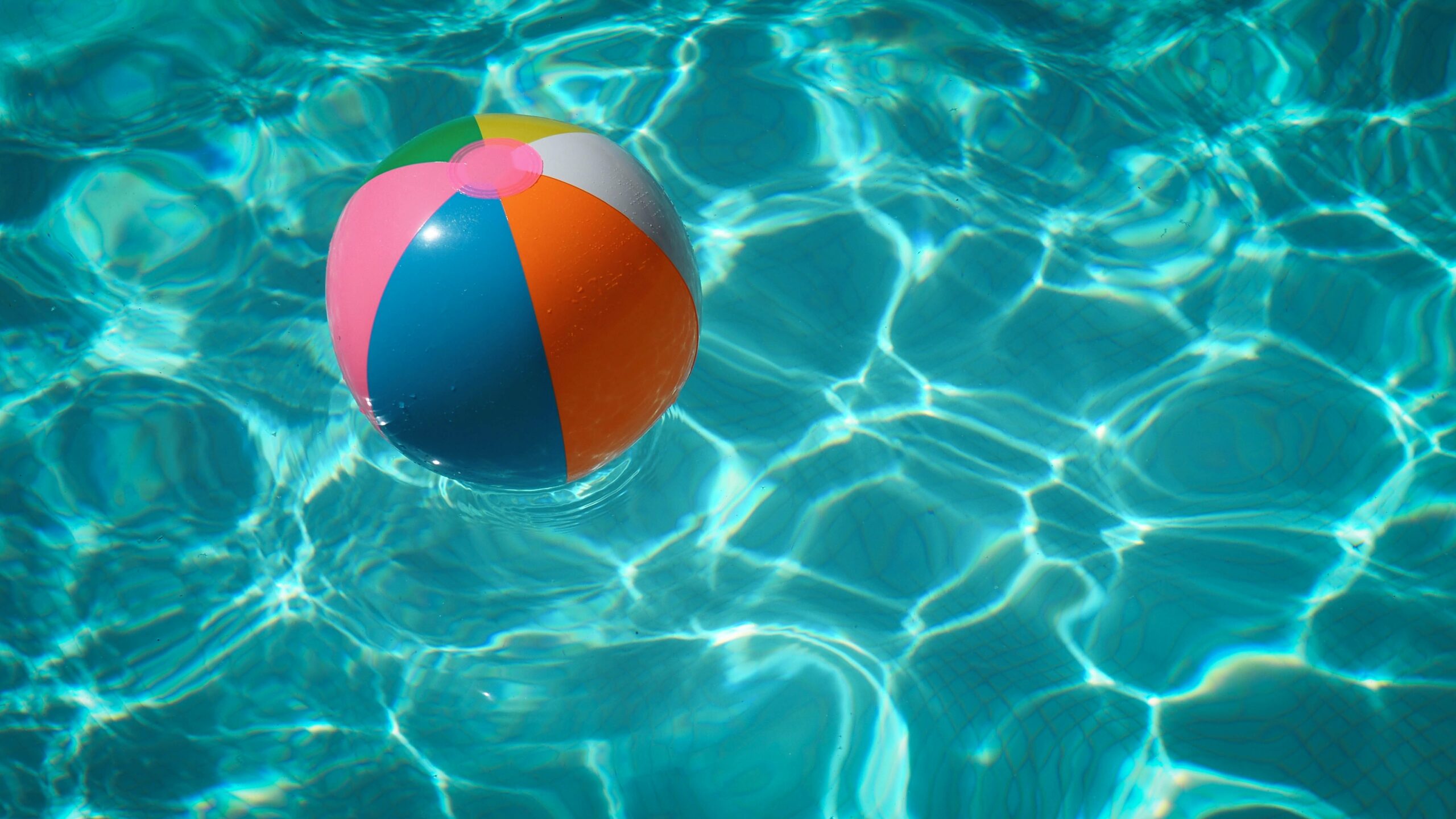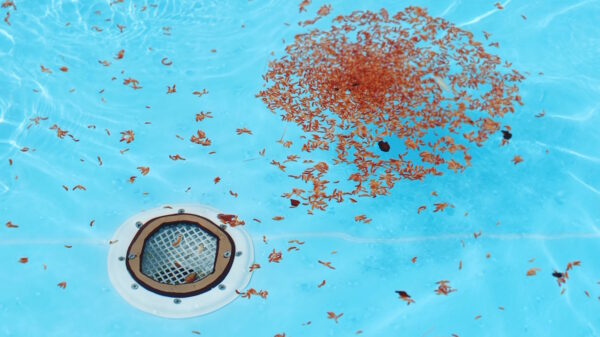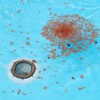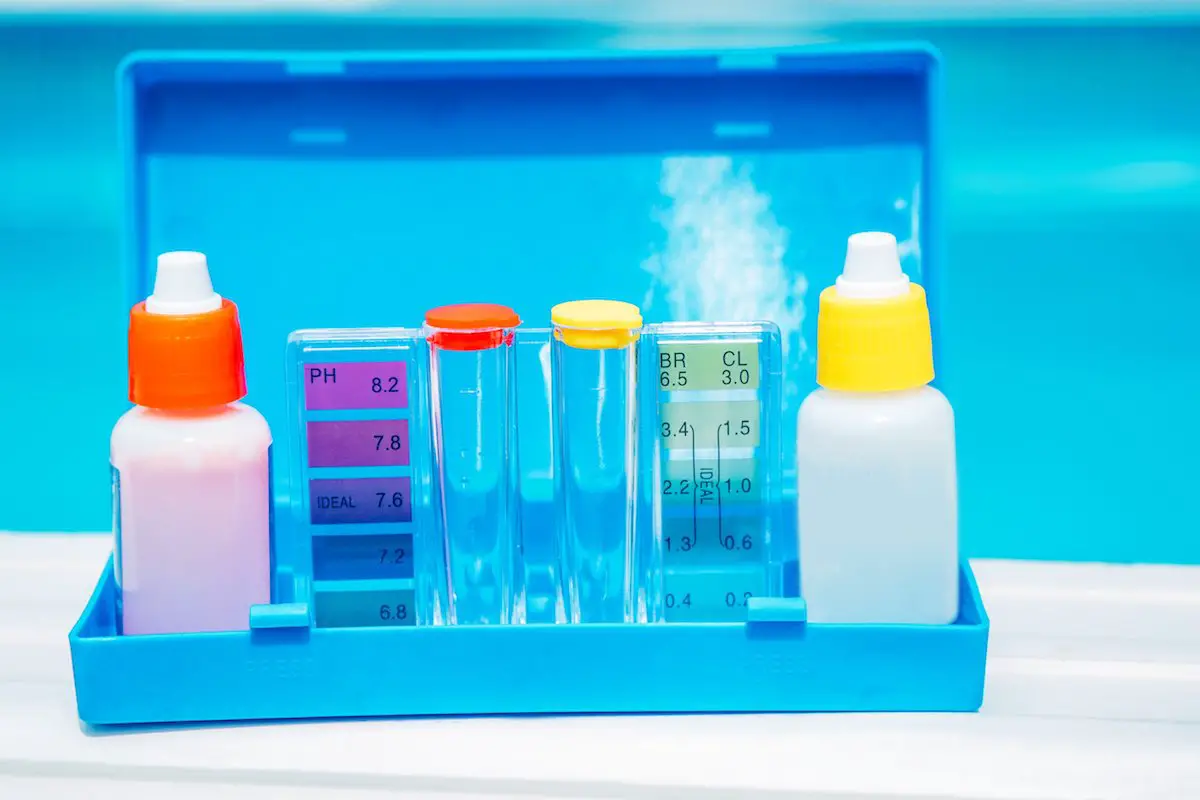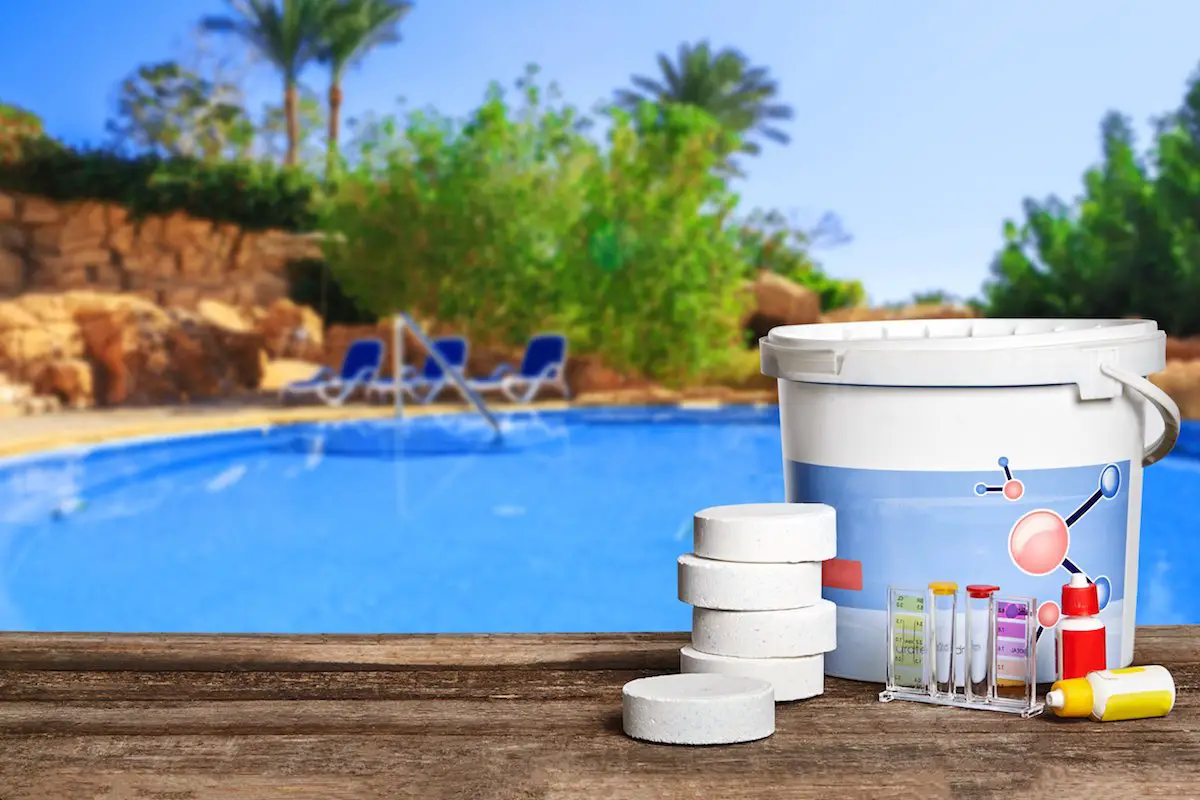Are There Benefits to Adding Muriatic Acid to My Pool?
When you first bought your pool you never thought how complicated it would be to maintain a pool. Most people think you add a little chlorine and skim the pool once in a while and that is all. But there is a lot more to it than that. Maintaining pH levels, alkalinity, calcium hardness, and chlorine levels can be quite a task for any pool owner. What does muriatic acid do for a pool? Muriatic acid is a chemical that is used to balance out the excessively alkaline water in your pool. It is an excellent way to lower the pH of your pool, and it can also be used to clean your pool’s surface. But if you don’t maintain these levels it can cause serious problems with your pool.
Balancing your pool water’s chemistry is critical for safe swimming. It is critical to have the pH where it should be, and testing the pool water is unavoidable. It may be a good idea to add muriatic acid to the water after testing. So to ensure that it isn’t too alkaline. This guide can show you why you need to add muriatic acid and when, how to do it safely, and what to expect when you do. So that you can personally care for your pool correctly, so keep reading!

Muriatic Acid Defined?
Muriatic acid is a diluted hydrochloric acid solution that is readily available in most big box stores, generally with concrete cleaning products. Because it is such a great product for removing surface contamination from natural stone and concrete, it is usually located near products like brick cleaners on the shelves.
- Muriatic acid is also available in smaller hardware stores or even online.
- Swimming pool businesses frequently sell their own more expensive balancing chemicals.
- They’re typically unnecessary and just a waste of your money.
When you find muriatic acid in the store, make sure it’s in a hefty plastic container. Keep track of the container because if it leaks, the caustic acid inside might burn your clothes or create fumes when it spills inadvertently.
How Do I Know When to Add Muriatic Acid?
What is the significance of adding caustic acid to your swimming pool water? When the pH level of your pool water becomes too alkaline, you’ll need to use an acid to return it to neutral. Let us explain why.
- The majority of swimming pools require a specific pH value.
- You’re most likely looking for a pH reading between 7.6 and 7.8 on your test kit or test strips.
- Pool water may become too basic (or alkaline).
- This is when you’ll need to use a chemical to bring the water back to where it should be in terms of pH.
- If you don’t, the water could start burning your eyes.
- You could also end up with difficulties like calcium buildup, scaling, and hazy water if the pool’s pH is allowed to get too basic for too long.
Note that some swimming pools require a slightly lower pH than others. For example, salt cell pools must have a pH of about 7.4 because salt systems tend on pushing the pH upward somewhat.
- Many pool owners will become enticed to let nature take care of their pool’s pH balance.
- If your pool is filled with a rainfall’s worth of slightly acidic rain, for example, you may simply need to add chemicals.
That is mostly wishful thinking. Get a couple of jugs of muriatic acid and store them in a secure location if you want to manage your pool water properly and don’t want to rely on rain to fix simple chemistry issues in your water.

What Are the Proper Amounts of Muriatic Acid to Add?
Let’s suppose you’re out by the pool with your pH test strips. You followed the directions and got a result of 8.0, indicating that your water is excessively alkaline. It’s time to neutralize your water using muriatic acid now. You can calculate how much muriatic acid to add based on the amount of water in your pool, also known as volume, called for in the instructions.
Precautions When Adding Muriatic Acid
Use muriatic acid without fear, but you must exercise caution. Here are some ideas to ensure that a safe amount of precautions is maintained:
- When opening the container make sure you are in a well-ventilated space.
- Always use safety goggles, gloves, and a safety apron
- When diluting muriatic acid the ratio needs to be 5 parts water to one part acid in a container. The water should be added first.
- When the jug muriatic acid container is open make sure to keep your head and face away from it.
- Make sure there is no direct inhalation of any gas that gets out of the container.
Directions For Adding Muriatic Acid
Pool experts have two different ways of adding muriatic acid to the pool. Some advocate shutting off the filter pump before adding the acid, while others do not. When the filter is turned off, the acid will diffuse into the water but not flow around. It may acquire a sufficient concentration to harm or color your pool’s liner, plaster, or other components and surfaces.
- By the time the filter is switched on, and again, slowly or even in tiny amounts, in front of the return pipes to the pool, in the deep end, if possible.
- Your filter may even have a “recirculate” option so that you can bypass it and simply keep the pump flowing water.
- You’ll avoid creating a concentrated super-dose of acid that might harm your equipment by distributing muriatic acid slowly. Perhaps in a few small doses right near the jet of water coming from your pool.
Because it’s so diluted, it’ll be fine for most uses. It’s a good idea to predilute the acid somewhat. Consider filling a pail halfway with water and then adding the amount of acid you need to the pail, instead of pouring it straight from the jar. This will reduce the danger of causing damage by using too strong an acid concentration.
-The acid should never be added to the bucket first. As this may cause the acid to react with the bucket and thereby damage it or perhaps even leak through it.
What Do I Need to Do Next?
- After the acid has been added, make sure the water is circulated.
- If you’d like to improve circulation, give the pool’s sides and floor a good brushing.
- This will further mix the water.
- After an hour, depending on the circulation speed of your filter and the size of your pool, the acid will have been entirely mixed in with the water.
- If you are still too alkaline, add more acid to balance it out.

How Long Do I Need to Wait To Swim?
Muriatic acid is a weaker form of hydrochloric acid, which is a strong chemical. The more potent acid has been diluted to about 30% concentration, making it safe to handle.
- It is dangerous, so be careful. If it or its vapors come into direct contact with your skin, eyes, or breathing passages, it can irritate your respiratory tract, produce temporary burning of the eyes and mucus membranes, and even induce severe inflammation.
- Remember, for best safety, wait at least a couple of hours before swimming after taking acid.
- However, this may be a little paranoid, especially for professional pool owners or expert service people.
- You may also find it useful to check the swimming pool calculator to see when the water is safe to swim in after adding chemicals.
If you decide to go in before that, which is not advised, make sure the water is circulating well. Also, make sure the water has been tested appropriately.
- This will ensure the water is safe for adults to swim.
- When there are young children going swimming, we recommend increasing the buffer and allowing the water to circulate for a little longer.
- This will ensure that the acid has been completely dispersed and any excessively concentrated pockets in the water have vanished.
When using chemicals in your pool, it is important to remember that less is almost always better. You would much rather have to add two or three doses than overdose the pool and have to enhance the chemicals because of a mistake. If you add chemicals too carelessly, you may find yourself in a position of having to drain and refill the pool.
Conclusion
Muriatic acid is a powerful chemical that should be handled with care. It is an excellent way to lower the pH of your pool, and it can also be used to clean your pool’s surface. When adding muriatic acid to your pool, always add it slowly and in small doses. This will ensure that the acid is properly diluted and will not cause any damage to your pool or its equipment. After adding the acid, make sure the water is well circulated. Wait at least an hour before swimming, and test the water to ensure it is safe.
Remember, when using chemicals in your pool, it is important to err on the side of caution. A little bit of acid goes a long way, so be careful not to add too much. With proper care and attention, muriatic acid can be an excellent tool for keeping your pool clean and pH-balanced.


